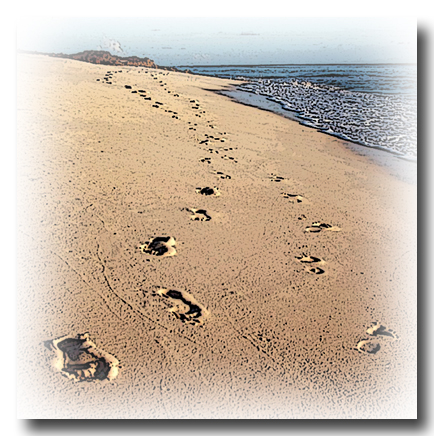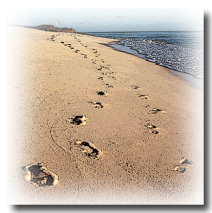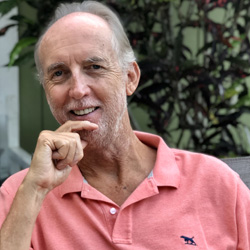 Fact 1: Now is different. From the breakdown of national economies and the end of so-called cheap oil, to the realities of climate change and the failure of the belief that war can solve our differences, a convergence of extreme conditions unlike anything known in the history of the world is upon us. It’s because now is different that the thinking of the past no longer works to solve our problems.
Fact 1: Now is different. From the breakdown of national economies and the end of so-called cheap oil, to the realities of climate change and the failure of the belief that war can solve our differences, a convergence of extreme conditions unlike anything known in the history of the world is upon us. It’s because now is different that the thinking of the past no longer works to solve our problems.
Fact 2: The turning point of thriving transformation can replace the tipping point of extremes. Nature provides a time when every crisis can be turned into transformation, when simply surviving the extremes in the world can be turned into a thriving way of life.
That time is a turning point. A turning point emerges when a new force—a fact, a discovery, an experience—changes the way we address our course of events. What matters is that turning points of life may be spontaneous, or they may be created.
Fact 3: Life gets better, and resilience is the key. It’s important to remember that the only things breaking down in our lives right now are ways of living and thinking that are no longer sustainable.
Personal resilience makes room for big shifts in our lives, and is our greatest ally in our time of extremes.
Fact 4: We already have new solutions. We already have the solutions necessary to create turning points of transformation in our lives. We don’t need to reinvent the wheel. Rather, we need to build the “road” of thinking that gives the “wheel” of solutions something to travel upon.
Fact 5: The biggest crisis is the most difficult to accept. The single factor that lies between crisis and transformation is one that has eluded scientists, politicians, and religious leaders alike. It’s a crisis in thinking. We must embrace the thinking that allows us to accept the existing solutions into our lives.
It’s these five facts that cut to the very heart of what we’re up against and hold the keys to the next step of transformation for ourselves and our world. Our ability to thrive in the midst of such monumental change—our resilience—is the first step to ensure the success of our journey.
If you’ve ever been on a journey of any kind, then you know the routine. To prepare for the trip, you first get an idea of where you’re going. You check the weather conditions, study maps, and then pack what’s needed to keep your routines alive while you’re traveling.
The key here is that when you know where you’re going, you know what to take. And when you find yourself going somewhere you’ve never been, you prepare for the unknown.
We’re all on a journey, and it’s a big one. Our journey is leading us to a place no one has ever been. There are no travel guides or Internet trip advisors to tell us precisely what our destination looks like or exactly what we’ll need when we get there. Rather than a temporary excursion to an exotic place that we can return from after a few days, what we hold are one-way tickets. This is a different kind of journey altogether. We’re not just going to another location somewhere on Earth. We’re going to another world hidden within our everyday lives—and it’s the choices we’re making today that are taking us there.
Together we’re barreling down the fast lane of a superhighway that’s crossing the boundaries of traditional beliefs, religions, and habits of the past. In doing so, we’re also blowing right past the limits of what we thought was possible. These very experiences are our passports leading us to the new world that’s emerging before our eyes.
A Shift in Thinking
I can’t say for sure what our destination will look like. After the dust settles and we learn to  adapt to our changing climate rather than trying to control it, after new and sustainable economies replace those that are fractured and failing today, after we embrace the technology that provides every bit of the energy we need without the devastating side effects of fossil fuels, I can only imagine what our lives and the world will be like. And when I do, I see a better place for us all.
adapt to our changing climate rather than trying to control it, after new and sustainable economies replace those that are fractured and failing today, after we embrace the technology that provides every bit of the energy we need without the devastating side effects of fossil fuels, I can only imagine what our lives and the world will be like. And when I do, I see a better place for us all.
I see a world where we’ve raised the standard of living for everyone, rather than lowering it for many in order to support only a few. I see a world where war is obsolete and using the threat of war to solve our problems no longer makes any sense. I see a world where our love of cooperation is greater than the fear that drives violent competition. And I see the shift in thinking that makes each of these things possible. To get to that shift, however, we must begin by recognizing the realities that we face and the promise that they hold. A good place to begin is by acknowledging the fact that we’re living in a time of extremes.
We’re living in a time when we can expect big things to happen—big shifts in the world and big changes in our lives. And just to be clear, the extremes I’m talking about don’t necessarily have to be considered bad things. It’s just that they’re big things, and they’re happening in our lives as well as our world.
What Will Be The New Normal?
We’re living the emergence of a new “normal,” and the success of our transition hinges upon: (1) our willingness to acknowledge the shift, and (2) how we learn adapt to it. Our globalized culture of jobs, money, markets, and resources means that it’s now impossible to separate the extremes in the world from what they mean in our everyday lives.
The crisis of climate change is a perfect example of this connection; the record-setting droughts caused by shifts in global weather patterns translate directly into the higher prices we pay for food at our local markets. The extreme debt and failing economies on the other side of the planet translate directly into higher costs at the gas pump and higher ticket prices for the buses, trains, and taxis that take us to work each day. Because of these and other extremes, business loans have become scarce, and the interest we’re being paid on our savings and retirement accounts is at a record low. The global slowdown of industry translates directly into the loss of jobs and benefits in our local communities.
These are the kinds of extremes in the world that are creating big changes in our lives. Among the many uncertainties they bring, though, there’s one thing that we can know with absolute certainty: our lives are changing in ways that we’re not prepared for, at a speed that we’ve never known.
The Big Picture
I’m an optimist by nature. I see real reasons for optimism in our lives. At the same time I’m also a realist. I am under no illusions when it comes to the huge amount of work that it’s taking to give birth to the new world that lies before us. Our ability to successfully meet the challenges that are converging in our lives begins by our acknowledging what may be the most obvious yet difficult question we could ask of ourselves: How can we deal with the issues if we’re not honest about the issues?
Our willingness to acknowledge the magnitude of this simple question is the key to developing more resilience in our time of extremes.
—– from a newsletter from Greg Braden



